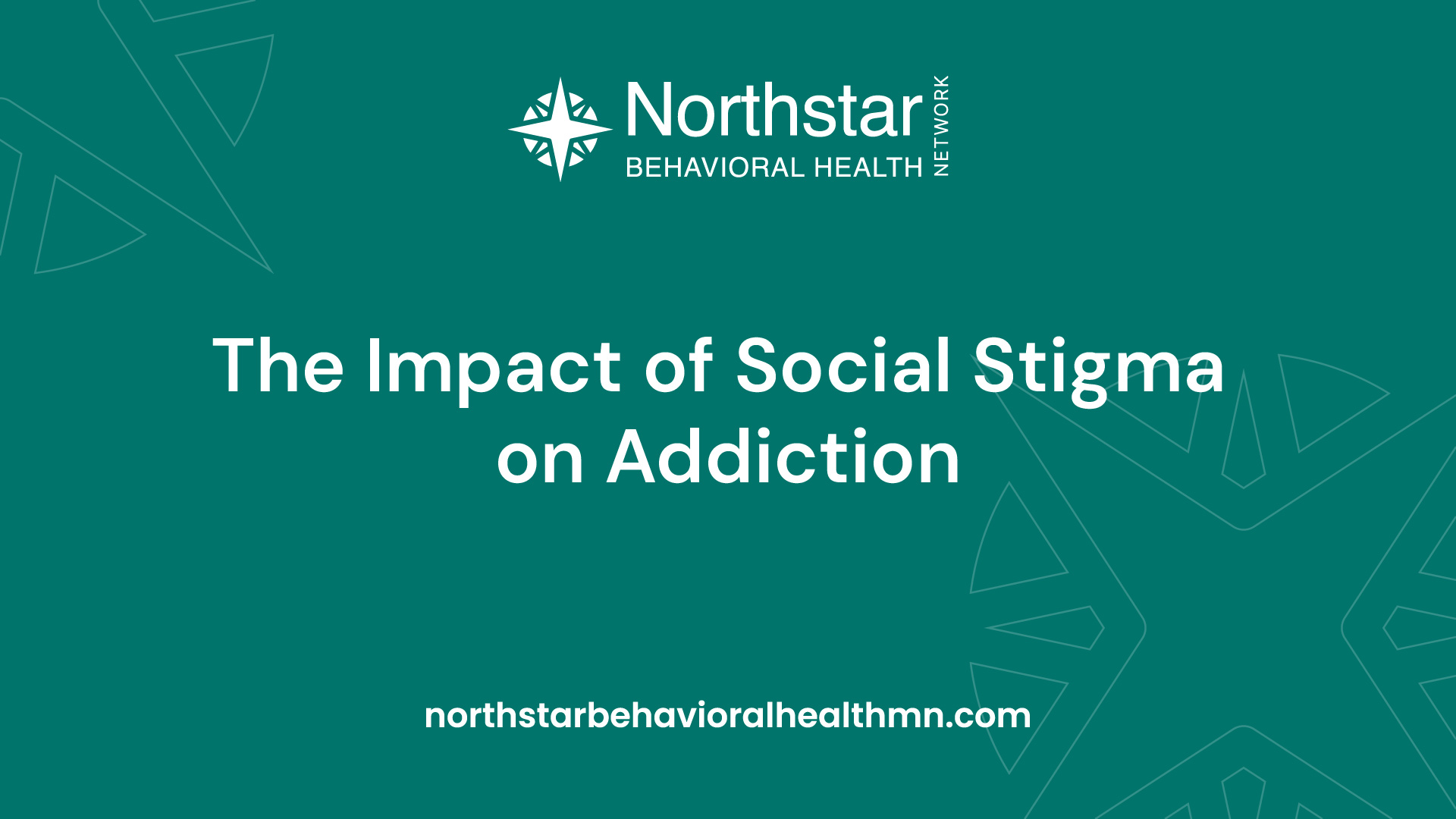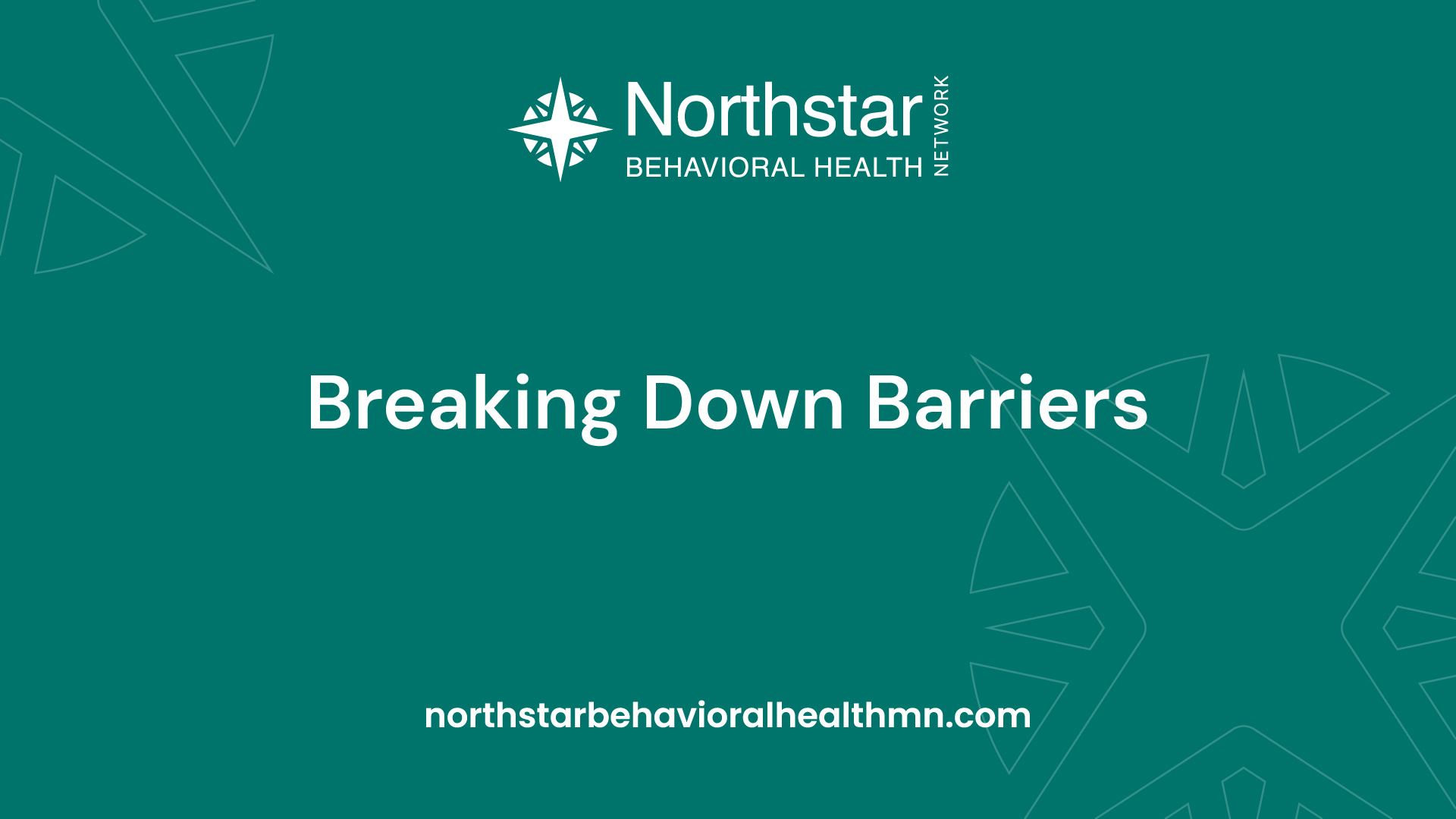August 4, 2024
Confronting The Social Stigma Of Addiction
Break free from misconceptions and embrace a supportive journey to recovery.


Understanding Addiction Stigma
In order to address the social stigma surrounding addiction, it is important to first understand its impact and the common misconceptions and stereotypes associated with it.
The Impact of Social Stigma on Addiction

Social stigma is a negative judgment or perception that society holds toward individuals who are struggling with addiction. This stigma often leads to discrimination, isolation, and barriers to seeking help. The impact of social stigma on individuals facing addiction can be profound, exacerbating feelings of shame, guilt, and hopelessness.
One of the primary consequences of addiction stigma is the reluctance of individuals to seek treatment and support. Fear of judgment and rejection can prevent individuals from reaching out for help, perpetuating the cycle of addiction and hindering their chances of recovery. This stigma-driven fear also makes it difficult for individuals to openly discuss their struggles with family, friends, and healthcare professionals, further isolating them from potential sources of support.
Common Misconceptions and Stereotypes
The social stigma surrounding addiction is often fueled by misconceptions and stereotypes. These misconceptions can arise from a lack of understanding and misinformation about the nature of addiction. Some common misconceptions include:
- Moral Failure: Addiction is often wrongly perceived as a moral failing or a lack of willpower. This misconception fails to recognize addiction as a complex medical condition that involves changes in the brain's functioning and reward system.
- Choice: Addiction is sometimes seen as a choice rather than a disease. This misconception fails to acknowledge the genetic, environmental, and psychological factors that contribute to the development of addiction.
- Weakness or Flaw: Individuals struggling with addiction are sometimes labeled as weak or flawed. This stereotype perpetuates the stigma and undermines the courage and strength it takes to seek help and embark on the journey of recovery.
- Untrustworthiness: People with addiction may be unfairly seen as untrustworthy or unreliable. This stereotype fails to recognize that addiction can affect individuals from all walks of life and that recovery is possible with the right support and treatment.
Challenging these misconceptions and stereotypes is crucial in reducing the social stigma associated with addiction. By increasing awareness, promoting empathy, and fostering understanding, we can create a more supportive environment for individuals seeking help and working towards recovery.
To learn more about the journey of resolving to be sober and finding support, visit our article on resolving to be sober.
Breaking Down Barriers

In order to address the social stigma surrounding addiction, it is crucial to break down the barriers that perpetuate misconceptions and stereotypes. By challenging preconceived notions and promoting empathy and understanding, we can create a more supportive and inclusive environment for individuals struggling with addiction.
Challenging Preconceived Notions
One of the first steps in breaking down barriers is challenging the preconceived notions and stereotypes associated with addiction. Many people hold misconceptions that individuals struggling with addiction are weak-willed, morally flawed, or lack self-control. These stereotypes not only perpetuate stigma but also hinder individuals from seeking help due to the fear of judgment and shame.
To challenge these preconceived notions, it is important to educate ourselves and others about the complex nature of addiction. Addiction is a complex disease that affects the brain and behavior, and it can happen to anyone regardless of their background or character. By understanding the science behind addiction and recognizing it as a medical condition rather than a personal failing, we can shift the narrative and foster a more compassionate and supportive society.
Promoting Empathy and Understanding
Promoting empathy and understanding is essential in breaking down the barriers created by addiction stigma. Empathy involves putting ourselves in someone else's shoes and seeking to understand their experiences and challenges. It requires us to set aside judgment and instead approach individuals struggling with addiction with compassion and support.
By sharing stories of recovery and personal experiences, we can humanize the issue of addiction and help others develop a deeper understanding. Personal stories can provide insights into the complexities of addiction, the struggles individuals face, and the strength and resilience required for recovery. These stories can also inspire hope and encourage individuals to seek the help they need.
In addition to personal stories, it is important to provide resources and information to educate others about addiction. This can include sharing articles, books, documentaries, or reputable websites that provide accurate and evidence-based information. By increasing awareness and knowledge, we can combat misinformation and challenge the stigma associated with addiction.
Breaking down barriers requires a collective effort from individuals, communities, and society as a whole. By challenging preconceived notions and promoting empathy and understanding, we can create a more supportive environment that encourages individuals struggling with addiction to seek the help they deserve. Remember, seeking support is an essential step towards recovery and a healthier, happier life.
Seeking Support
When confronting the social stigma of addiction, seeking support is essential for individuals who want to overcome their addiction and begin the journey to recovery. Having a strong support system can make a significant difference in an individual's ability to overcome challenges and maintain sobriety. In this section, we will discuss the importance of a support system and strategies for overcoming shame and guilt.
Importance of a Support System
Having a support system can provide the necessary emotional, practical, and motivational support for individuals seeking to overcome addiction. It is crucial to surround oneself with individuals who understand the challenges and complexities of addiction, as they can offer empathy, encouragement, and guidance.
A support system can consist of various people, such as family members, friends, mentors, or support groups. These individuals can help create a safe and non-judgmental space where one can openly discuss their struggles, share their achievements, and seek advice. Support groups, such as Alcoholics Anonymous (AA) or Narcotics Anonymous (NA), provide a community of individuals who have faced similar challenges and can offer invaluable support and insights.
In addition to emotional support, practical assistance from a support system can be beneficial. This can include helping with transportation to therapy or recovery meetings, assisting with daily responsibilities, or offering a place to stay during difficult times. The collective strength of a support system can help individuals stay focused, motivated, and accountable on their path to recovery.
Overcoming Shame and Guilt
Shame and guilt are common emotions experienced by individuals struggling with addiction. These negative emotions can hinder progress and prevent individuals from seeking the support they need. Overcoming shame and guilt is an important step towards healing and recovery.
One strategy for overcoming shame and guilt is practicing self-compassion. It is essential to recognize that addiction is a complex issue influenced by various factors, including genetics, environment, and personal circumstances. Rather than blaming oneself, individuals should focus on self-forgiveness and understanding that addiction is a disease that can be treated with the right support and resources.
Another helpful approach is to challenge negative self-talk and replace it with positive affirmations. By reframing negative thoughts into positive ones, individuals can build self-esteem and confidence, which are essential for recovery. Engaging in therapy or counseling can provide a safe space to explore these emotions and learn coping mechanisms to overcome shame and guilt.
By seeking support, individuals can break free from the isolation that often accompanies addiction and confront the social stigma surrounding it. The support system can provide guidance, encouragement, and understanding, helping individuals navigate the challenges of recovery. Overcoming shame and guilt is a crucial step in the healing process, allowing individuals to embrace a new, sober life.
For more information on seeking support and resources for addiction recovery, visit our article on seek the sober life.
Changing the Narrative
To confront the social stigma of addiction, it is crucial to change the narrative surrounding addiction and individuals in recovery. By sharing personal stories and advocating for change, we can challenge the misconceptions and stereotypes associated with addiction.
Sharing Personal Stories
One powerful way to combat addiction stigma is by sharing personal stories of recovery. These stories humanize the experience of addiction and help others understand that it is a complex issue that can affect anyone. By sharing their journeys, individuals in recovery can inspire hope and provide a sense of solidarity to those who may be struggling.
Personal stories can be shared through various platforms, such as support groups, online communities, or even public speaking engagements. They provide a platform for individuals to express their triumphs, challenges, and the transformative power of recovery. These stories allow others to see that recovery is possible and that individuals with addiction deserve support and understanding.
Advocating for Change
Advocacy plays a crucial role in challenging the social stigma of addiction. By raising awareness, challenging stereotypes, and promoting policies that support individuals in recovery, we can work towards breaking down the barriers that perpetuate stigma.
Advocacy efforts can take many forms, such as participating in public forums, contacting legislators, or joining advocacy organizations. By amplifying the voices of individuals in recovery and their allies, we can bring attention to the need for accessible treatment options, supportive communities, and policies that prioritize recovery.
Advocacy also involves educating the public about addiction as a chronic disease that requires understanding and compassion. By dispelling myths and providing accurate information, we can combat the misconceptions that contribute to the stigma surrounding addiction.
Changing the narrative requires collective action. By sharing personal stories and advocating for change, we can create a society that supports individuals in recovery and treats addiction as a health issue rather than a moral failing.
To learn more about seeking support during the recovery journey, read our article on the importance of a support system and how to overcome shame and guilt.
Educating Others
To combat the social stigma surrounding addiction, it is essential to educate others about the realities of addiction and challenge the misconceptions that perpetuate stigma. By spreading awareness and providing resources and information, we can help create a more supportive and understanding society.
Spreading Awareness
One of the most effective ways to combat addiction stigma is by spreading awareness. This involves sharing accurate information about addiction, its causes, and its impact on individuals and communities. By educating others about the complexities of addiction, we can help break down the barriers of misunderstanding and judgment.
Spreading awareness can take many forms, including public campaigns, social media initiatives, and community events. It is important to use evidence-based information and statistics to ensure the message is credible. By highlighting the prevalence of addiction and its impact on individuals from all walks of life, we can challenge the notion that addiction only affects certain groups or is a moral failing.
Through awareness-raising efforts, we can encourage conversations about addiction, promote empathy, and facilitate a more supportive environment for those seeking help. For more information on addiction and related topics, refer to our articles on resolving to be sober and recovery gifts that support sobriety.
Providing Resources and Information
In addition to spreading awareness, providing resources and information is crucial in combating addiction stigma. By equipping individuals with accurate and accessible information, we empower them to make informed decisions and support those who may be struggling with addiction.
Resources can include helpline numbers, support group information, treatment options, and educational materials. These resources should be readily available and easily accessible to individuals seeking help or wanting to learn more about addiction.
Furthermore, providing information about the signs of addiction, available resources, and the process of seeking help can help break down the barriers that prevent individuals from reaching out. By addressing common concerns and misconceptions, we can encourage individuals to seek support and treatment without fear of judgment or shame.
For families and loved ones of individuals struggling with addiction, resources that offer guidance on how to provide support and navigate the challenges associated with addiction can be invaluable. Internal links to articles such as three things to know before dating an addict and risk for substance use is higher in military kids can provide further information and support.
By educating others, spreading awareness, and providing resources, we can contribute to reducing addiction stigma and creating a society that is supportive, understanding, and compassionate towards individuals affected by addiction. Together, we can make a difference and encourage individuals to seek the help they need to overcome addiction.
Moving Forward
Recovering from addiction is a journey that requires strength, perseverance, and support. As individuals confront the social stigma surrounding addiction, it is important to focus on embracing healing and recovery, as well as empowering individuals to seek help.
Embracing Healing and Recovery
The path to healing and recovery from addiction is unique for each individual. It requires a commitment to self-care, self-reflection, and making positive changes in one's life. Embracing healing means acknowledging past mistakes and taking steps towards personal growth and well-being.
Support systems play a crucial role in the recovery process. Whether it's through therapy, support groups, or the guidance of loved ones, having a strong network can provide the encouragement and accountability needed to stay on track. It's important to remember that recovery is a lifelong journey, and it's okay to ask for help along the way. For further information on seeking support, refer to our article on resolving to be sober.
Empowering Individuals to Seek Help
Overcoming addiction requires individuals to confront their struggles and seek professional help. Breaking the stigma surrounding addiction involves empowering individuals to reach out for assistance without fear of judgment or discrimination. By providing a safe and supportive environment, we can encourage those battling addiction to take the first step towards recovery.
It's essential to spread awareness about available resources and treatment options. This can be done through educational campaigns, community outreach programs, and online platforms. By sharing information on addiction treatment centers, therapy options, and support groups, individuals can make informed decisions about their recovery journey. To learn more about the available resources, visit our article on recovery gifts that support sobriety.
By embracing healing and recovery and empowering individuals to seek help, we can collectively shatter the social stigma surrounding addiction. It is crucial to foster a compassionate and understanding society that supports individuals on their path to recovery. Together, we can create an environment where individuals feel encouraged, accepted, and empowered to take control of their lives and overcome addiction.

.jpg)




.jpg)

